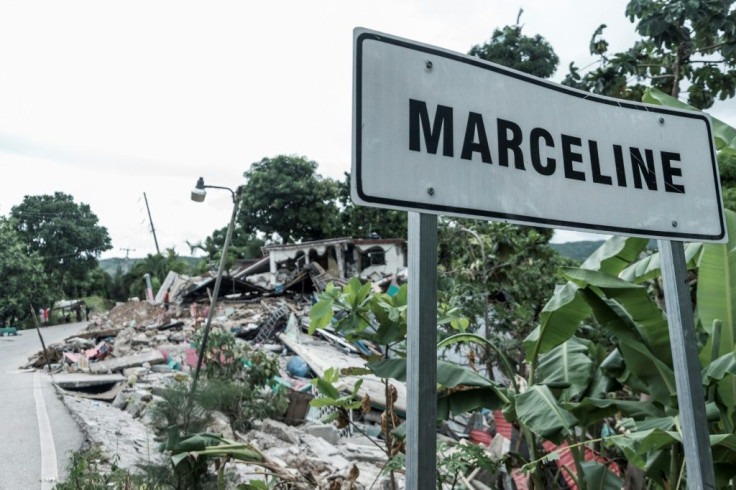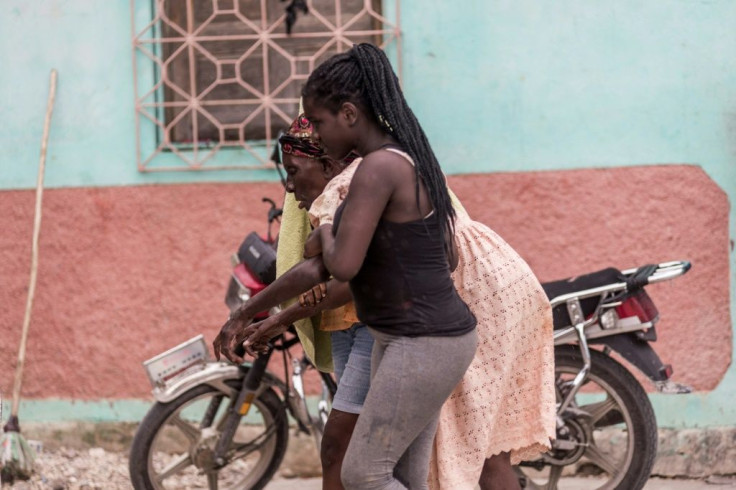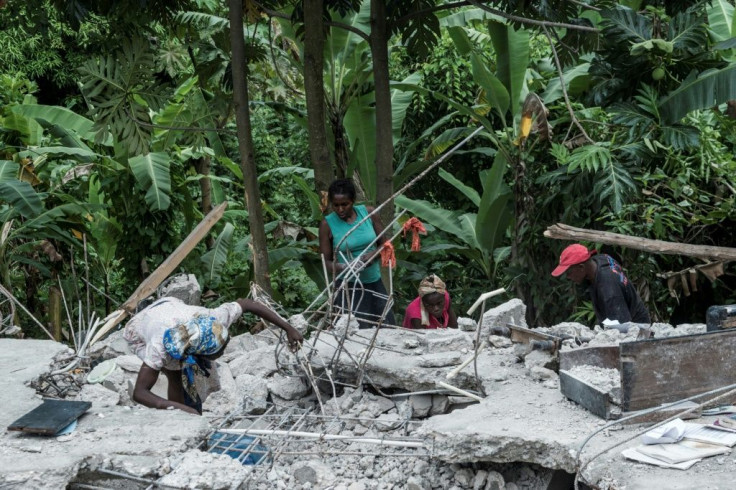Haiti Quake A Cruel New Blow To Hurricane Matthew Survivors
An hour's drive from Haiti's southern coast, only a sign remains indicating where the district of Marceline stood until every last house crumbled in Saturday's earthquake -- the latest blow to an area that is no stranger to natural disaster.
Tragedy has cast a long pall over life in Haiti's southwest corner, which suffered a humanitarian crisis in October 2016 when Hurricane Matthew caused catastrophic damage, leveling an estimated 200,000 homes and killing hundreds.

"When Matthew passed, the roof of my house was carried away. It was through a Canadian organization that I was able to rebuild it," said Bertha Jean Louis, standing Tuesday in front of her now-destroyed sheet metal dwelling.
Nothing remains of the 43-year-old's life save a heap of concrete, broken furniture and tattered linens. Neither her house nor her mother's withstood the shaking that devastated their community, near the city of Camp Perrin.

On either side of the road that crosses the southern peninsula, buildings crumbled under the force of the 7.2 magnitude earthquake, with few exceptions.
"We need help finding a house. That's all. Then we can make do, we're used to it. We'll work the land and that will sustain us," Jean Louis said.
Her voice, energetic and assertive, reveals little of the recent tragedy that has befallen her: a 35-year-old brother who died in the collapse of their shared home, the hospitalization of her husband with injuries to both legs, the fact that she is now tending to her 75-year-old mother alone while four months pregnant.

"Since Saturday, I've been wearing the same dress. I can't risk going under the rubble to save anything. I just wash my underwear, and when it's dry, I wash my dress, that's how I do it because I have nothing saved," she explained.
"I'm totally discouraged, but I know that the Good Lord will send us aid from another country, like what happened after Matthew. That's why I still have hope."

Her neighbor, who also lost everything, is already hard at work building a tin shelter in front of what remains of his house.
"After Matthew, I took in a lot of people. I welcomed them here because the whole neighborhood was destroyed. But today, I can't do anything for them because I too am in the street," said Claude Altime.
When Matthew walloped Haiti in 2016 it left a trail of death and destruction: more than 500 people killed and nearly $2 billion in damage.
The storm hit with the country still recovering from a massive 2010 tremor that devastated the capital Port-au-Prince and left nearby cities in ruins, killing more than 200,000.
This week should have been an occasion for celebration. Altime's two youngest children, age four and 11, celebrated their birthdays. But the family was sunk too deep in despair.
"If I could find a place to disappear to and leave this area, I would flee, because I suffered Matthew and now I suffer this. I had never seen an earthquake in my life," he said.
On Tuesday a new weather system, Tropical Storm Grace, brought the all-too-familiar threat of torrential rain to the country.
In the downpour Altime is trying to eke out, under a few pieces of sheet metal fixed to frail wooden poles, a daily existence for his wife and their four children, as well as for his octogenarian father whose house collapsed not far away.
© Copyright AFP {{Year}}. All rights reserved.





















